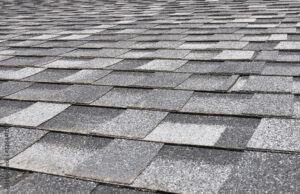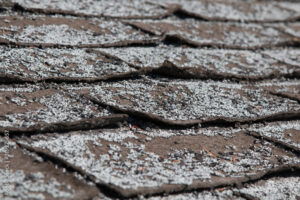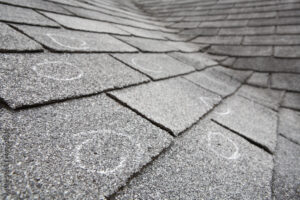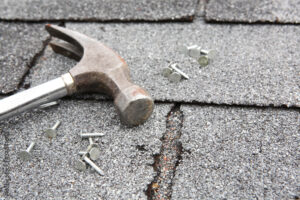When it comes to roofing materials, one highly popular option that often rises to the top—pun intended—is asphalt shingles. Prized for their cost-effectiveness and wide variety of styles, they’re a top choice for many homeowners looking to replace or upgrade their roofs. However, like any product, they come with their own set of advantages and potential drawbacks. In this comprehensive guide, we’ll walk you through the world of asphalt shingles, helping you decide if they’re the right choice for your home.
What Are Asphalt Shingles?
To understand if asphalt shingles are right for you, it’s essential to grasp what they are. Asphalt shingles are the most common residential roofing material used in the United States. They consist of a base mat coated with asphalt, which is then embedded with ceramic granules. The shingles are layered from the bottom edge of the roof with each subsequent row overlapping the joints below it.
These shingles come in two main types:
- Fiberglass: These are a type of asphalt shingle that’s made from a base layer of glass fiber. They are lighter, yet more fire-resistant than organic asphalt shingles.
- Organic: These shingles are made of paper saturated in asphalt to make them waterproof, with an adhesive salt coating to anchor the ceramic granules.
In recent years, improvements in technology have led to the development of more durable and sustainable versions of asphalt shingles.
The Pros of Asphalt Shingles
Cost-Effective and Easily Accessible
One of the most significant pros of asphalt shingles is their affordability. Compared to materials like slate, tile, and metal, asphalt shingles are much cheaper, making them an appealing option for homeowners who are on a tight budget. Additionally, they are widely available and easy to come by, which can save time on delivery and installation.
 Aesthetic Appeal and Variety
Aesthetic Appeal and Variety
Another major advantage of asphalt shingles is the wide range of styles, colors, and designs available. Homeowners can get the look of expensive roofing materials without the high price tag. Asphalt shingles are versatile and can mimic the appearance of wood shingles, slate, or tile, providing homes with a customized and often luxurious look.
Relatively Easy to Install and Repair
For the DIY enthusiasts and those looking to save on labor costs, asphalt shingles can be a joy. They are relatively easy to install compared to other roofing materials, which can be quite heavy or brittle. Their ease of installation also means repairs are less labor-intensive, saving both time and money.
Follow and subscribe to our YouTube channel for tons of Great information.
Websiteconstructionconsumeradvocacyinstitute.com
Podcastanchor.fm/galloway
www.youtube.com/@ConstructionConsumerAdvocacy
Decent Lifespan for the Price
While not as long-lasting as some more expensive roofing materials, asphalt shingles can still provide a good life expectancy, ranging from 15 to 30 years, depending on various factors such as climate, maintenance, and the quality of the shingles used.
 The Cons of Asphalt Shingles
The Cons of Asphalt Shingles
Lower Durability Compared to Other Materials
Despite technological advances, asphalt shingles are still more prone to wear and tear from extreme weather conditions, such as high winds, and can be more easily damaged than materials like metal or slate. They can also be more susceptible to mold and mildew in environments with high moisture content.
Environmental Impact
The production and disposal of asphalt shingles can have a significant environmental impact. Traditional asphalt shingles are not biodegradable and can contribute to landfill waste. Additionally, the petroleum used in their production can have a negative environmental footprint.
Limited Warranty Protection
Most asphalt shingle warranties only cover defects in materials and do not typically include issues caused by weather or installation errors. This could leave homeowners with unexpected costs if their roof sustains damage from a storm or if the installation wasn’t done to the manufacturer’s specifications.
Not as Energy Efficient
Compared to reflective or light-colored roofing materials, asphalt shingles absorb more heat and can contribute to the ‘heat island effect’ in urban areas. They can also cause homes to be less thermally efficient, leading to higher energy bills.
Making the Right Choice
Deciding whether asphalt shingles are the right roofing material for your home is a significant choice. Consider the following factors to help you make a well-informed decision:
- Budget: If you’re looking for an affordable option or need to replace a roof quickly, asphalt shingles may be the best choice for you.
- Climate and Weather Considerations: Assess the typical weather in your area. If your home is subject to high winds, storms, or significant snow loads, a more durable material might be worth the investment.
- Long-Term Vision: Are you planning to stay in your home for a long time? If so, the initial cost savings of asphalt shingles may be overshadowed by the need for more frequent replacements or repairs.
- Sustainability Goals: For those with a focus on sustainability, explore the options for more eco-friendly asphalt shingle alternatives or consider other materials that have a lighter environmental footprint.
Conclusion
Asphalt shingles can be an excellent choice for many homeowners due to their affordability, versatility, and ease of installation. However, they’re not without their trade-offs, particularly in terms of durability and environmental considerations. Before making a decision, carefully weigh the pros and cons, and consider consulting with a roofing professional to ensure you make the choice that’s right for your home. Remember, your roof is a long-term investment, so it’s essential to make a decision that you can be confident in for years to come.
Follow and subscribe to our YouTube channel for tons of Great information.
Websiteconstructionconsumeradvocacyinstitute.com
Podcastanchor.fm/galloway
www.youtube.com/@ConstructionConsumerAdvocacy




